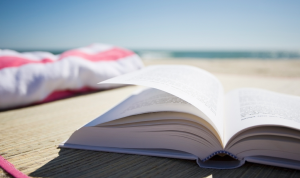 Last year around this time Who Are These People, Anyway? focused on summer reading: ours and (we hoped) yours. The results are here. Deciding that nothing succeeds like success, this year we’re doing the same. Read on for English faculty choices – what we want to read this year and what we want you to read. Those who played last year also report on how things went.
Last year around this time Who Are These People, Anyway? focused on summer reading: ours and (we hoped) yours. The results are here. Deciding that nothing succeeds like success, this year we’re doing the same. Read on for English faculty choices – what we want to read this year and what we want you to read. Those who played last year also report on how things went.
Stephanie Roach
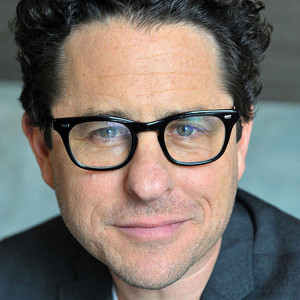 This summer I am determined to read S. by J.J. Abrams and Doug Dorst. Most of the reviews have sounded a lot like this one from The Miami Herald: “Both as literature and as a physical object, S. is a profound and tremendous work of art.” That’s hard for me to resist. Plus, it’s J.J. Abrams (Fringe, Lost, Alias, and Super 8 fans know what I’m talking about).
This summer I am determined to read S. by J.J. Abrams and Doug Dorst. Most of the reviews have sounded a lot like this one from The Miami Herald: “Both as literature and as a physical object, S. is a profound and tremendous work of art.” That’s hard for me to resist. Plus, it’s J.J. Abrams (Fringe, Lost, Alias, and Super 8 fans know what I’m talking about).
The book I would encourage students to read over the summer is anything by the Irish novelist Tana French. I was a sucker for the characters in her debut novel In the Woods, though I think she’s gotten better with each book (The Likeness, Faithful Place, Broken Harbor). Booklist said this of her debut, “In the Woods is a superior novel about cops, murder, memory, relationships, and modern Ireland”—and that’s pretty much been true of every book after. She has a new one coming out in September (The Secret Place), but the real reason to start reading is to able to watch and appreciate how scholars are already starting to stitch her into the fabric of literary history. Here is just one recent collection where her work is studied.
Last summer I did, in fact, read The Woman Who Died A Lot: A Thursday Next Novel by Jasper Fforde. I felt very much like this reviewer from Shelf Awareness: “Jasper Fforde fans, rejoice! The Woman Who Died a Lot, the seventh installment in his Thursday Next series, delivers all the imagination, complexity and laughs we’ve come to expect from Fforde and his book-hopping, butt-kicking heroine. The Woman Who Died a Lot brings together the charming lunacy and intricate plotting that have enthralled Fforde’s readers over the years.” This series is a real treat for people who like books.
As I recommended last summer, start with The Eyre Affair.
Cathy Akers-Jordan
Last summer I re-read The Lord of the Rings. As always, I found quite a few subtle nuances I missed during my many previous readings. I strongly recommend this book for students as an example of timeless and many-layered literature. I especially recommend it to those who have only seen the films.
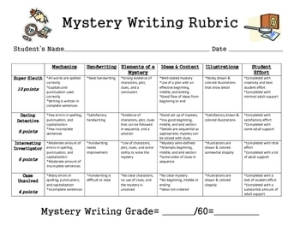 I plan to work on my mystery novel this summer, so I’m reading several books on writing in general and writing mysteries in particular. A few are Writer’s Block is Bunk by Lev Raphael, Great Fiction: Plot and Structure by James Scott Bell, and Gotham Writers Workshop: Writing Fiction by Michael Brooks.
I plan to work on my mystery novel this summer, so I’m reading several books on writing in general and writing mysteries in particular. A few are Writer’s Block is Bunk by Lev Raphael, Great Fiction: Plot and Structure by James Scott Bell, and Gotham Writers Workshop: Writing Fiction by Michael Brooks.
James Schirmer
A book I’m determined to read this summer: Kelly Pender’s Techne, From Neoclassicism to Postmodernism: Understanding Writing As a Useful, Teachable Art. Significant portions of my dissertation focused on this old Greek word and I’m very interested in Pender’s book-length perspective. I suspect hers will be much deeper and more thoughtful than my own. I hope to learn much from this book.
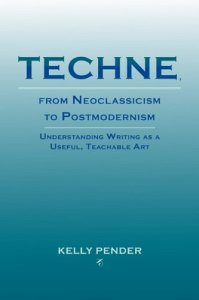
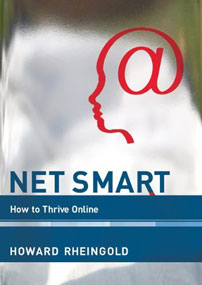
A book students should read this summer: Howard Rheingold’s Net Smart: How to Thrive Online. Rheingold addresses how and why we might use digital media toward a public good, looking at attention, participation, collaboration, and what he calls “crap detection.” An important book in our important time.
Result of last summer’s goal: A better, broader understanding of writing’s relationship with commerce.
Kazuko Hiramatsu
To read: The F Word by Jesse Sheidlower. I’m thinking of developing a course on the language of swearing.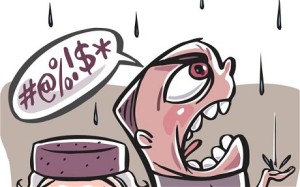
Recommended: Miss Peregrine’s Home for Peculiar Children by Ransom Riggs. The photographs that are central to the story are eerie and lovely.
Last year’s goal: An Anatomy of Type by Stephen Coles. I flipped through the guide to 100 typefaces but only studied some of the typefaces in detail.
Tom Foster
My summer reading aspiration is Mr. Fox by Helen Oyeyemi. She is ridiculously young (will turn thirty in December) and has lived all over the place–Nigeria, where she was born, London, Oxford, Toronto, Prague, Berlin. This novel, published in 2011, is her fourth. Her first was written while she was studying for her A-levels (still in high school, in other words), published her first year at Oxford.
 The novel is a clever take on the Bluebeard story, this time with a writer who kills off all his heroines in grisly fashions until being accosted by his muse. In other words, it has everything I like to see in a novel: humor and wit, intertextuality, reworked fairy tales, life and death issues, terrific prose, and considerations of artistic morality (if any). I’m also interested in her fifth, Boy. Snow. Bird., a version of the Snow White story that came out earlier this year.
The novel is a clever take on the Bluebeard story, this time with a writer who kills off all his heroines in grisly fashions until being accosted by his muse. In other words, it has everything I like to see in a novel: humor and wit, intertextuality, reworked fairy tales, life and death issues, terrific prose, and considerations of artistic morality (if any). I’m also interested in her fifth, Boy. Snow. Bird., a version of the Snow White story that came out earlier this year.
Last year’s model, Colum McCann’s Transatlantic, was interesting. It’s not his best novel, but even his not-best is pretty darned good.
Scott Caddy
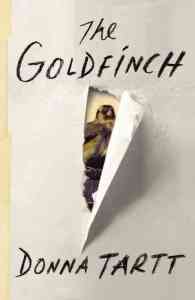 A book I am determined to read this summer: The Goldfinch by Donna Tartt.
A book I am determined to read this summer: The Goldfinch by Donna Tartt.
A book my students should read this summer: Fire in the Ashes: Twenty Five Years Among the Poorest Children in America by Jonathan Kozol. Not only is it the 2014 Common Read, but the theme fits perfectly with many issues students and families face in the Flint area.
D. J. Trela
As the new and old kid on the English block, but most definitely the one who’s done the least amount of teaching in  the Department in the past fifteen years, my summer reading will focus significantly on works I’ll be using or referring to in my fall course ENG 359: Biography as Literature. High on my list are Walter Isaacson’s Steve Jobs, Gaskell’s Life of Charlotte Brontë, and Boswell’s Life of Johnson. Though too long for a single course, selections from Robert Caro’s life of a very different Johnson–Lyndon–are also on my list.
the Department in the past fifteen years, my summer reading will focus significantly on works I’ll be using or referring to in my fall course ENG 359: Biography as Literature. High on my list are Walter Isaacson’s Steve Jobs, Gaskell’s Life of Charlotte Brontë, and Boswell’s Life of Johnson. Though too long for a single course, selections from Robert Caro’s life of a very different Johnson–Lyndon–are also on my list.
A book less work-related that intrigues me, based on its New Yorker review, is Five Came Back: A Story of Hollywood and the Second World War, by Mark Harris. This is an account of five distinguished WWII era Hollywood directors, and the films and documentaries that they produced during and after the war. Their work is described as “the largest movie propaganda campaign the government had ever undertaken.”
Monika Ehrlich
1) The book I’m determined to read: Joseph Anton: A Memoir by Salman Rushdie. It’s been on my list since it came out – not only am I a huge fan of Rushdie’s writing, but the topic, his life in hiding after writing/publishing The Satanic Verses, I find fascinating.
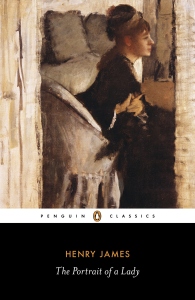 2) The book I think/wish my students would read this summer: The Portrait of a Lady by Henry James. Simply (selfishly) it is in my top ten favorite books – more importantly, reading James (Portrait in particular) as a student at UM-Flint, is what made me want to become an English major.
2) The book I think/wish my students would read this summer: The Portrait of a Lady by Henry James. Simply (selfishly) it is in my top ten favorite books – more importantly, reading James (Portrait in particular) as a student at UM-Flint, is what made me want to become an English major.
3) The result of last year’s picks? I did, indeed, read The Girls of Atomic City. I have suggested/recommended (cajoled?) a number of students to read Everything is Illuminated – one reported back, “it was weird, but it was worth it – maybe I’ll read another book.” – so I will take that as a success!!!
Mary Jo Kietzman
Bible: Prophetic Books, Gospels of Luke and Matthew, Epistles of St. Paul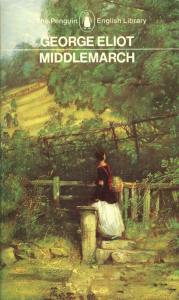
Shakespeare: Henry VIII or All is True, Cymbeline
Marin Buber: Tales of the Hasidim, Early & Late Masters
George Eliot: Middlemarch
More important than a reading list, I believe in summer writing projects. Mine is to write a readable book on Shakespeare’s use of biblical story to apply the concept of covenant to his world. I would urge all of my students to create a writing project and read what they need to know to develop it. Otherwise, I’d recommend anything by Flannery O’Connor or one of the great Russian writers: Dostoyevsky, Tolstoy, or Chekhov.
Steve Bernstein
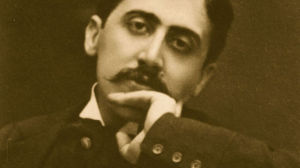 Last year I vowed to read Swann’s Way, the first book of Marcel Proust’s seven-novel modernist epic In Search of Lost Time. I caught the Proust bug and plowed through 2000 pages (four novels) before Fall semester beckoned. This summer’s priority? The last 1500 pages (three novels) – I can’t wait! Proust’s work may well be the most fascinating rendering of consciousness and subjectivity that I’ve ever read.
Last year I vowed to read Swann’s Way, the first book of Marcel Proust’s seven-novel modernist epic In Search of Lost Time. I caught the Proust bug and plowed through 2000 pages (four novels) before Fall semester beckoned. This summer’s priority? The last 1500 pages (three novels) – I can’t wait! Proust’s work may well be the most fascinating rendering of consciousness and subjectivity that I’ve ever read.
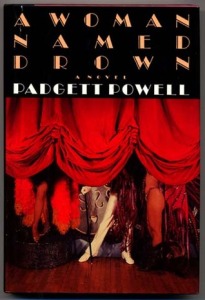 For students or, really, anyone, I recommend Padgett Powell’s strange and wonderful novel A Woman Named Drown (1987), recently back in print. This is a book that changed (for the better) how I see the world (I know that’s cryptic, but come talk to me when you’ve read it), and bears multiple rereadings (did I mention that it’s only 180 pages?). It’s very funny too. Powell is a little-known American treasure – don’t miss him!
For students or, really, anyone, I recommend Padgett Powell’s strange and wonderful novel A Woman Named Drown (1987), recently back in print. This is a book that changed (for the better) how I see the world (I know that’s cryptic, but come talk to me when you’ve read it), and bears multiple rereadings (did I mention that it’s only 180 pages?). It’s very funny too. Powell is a little-known American treasure – don’t miss him!